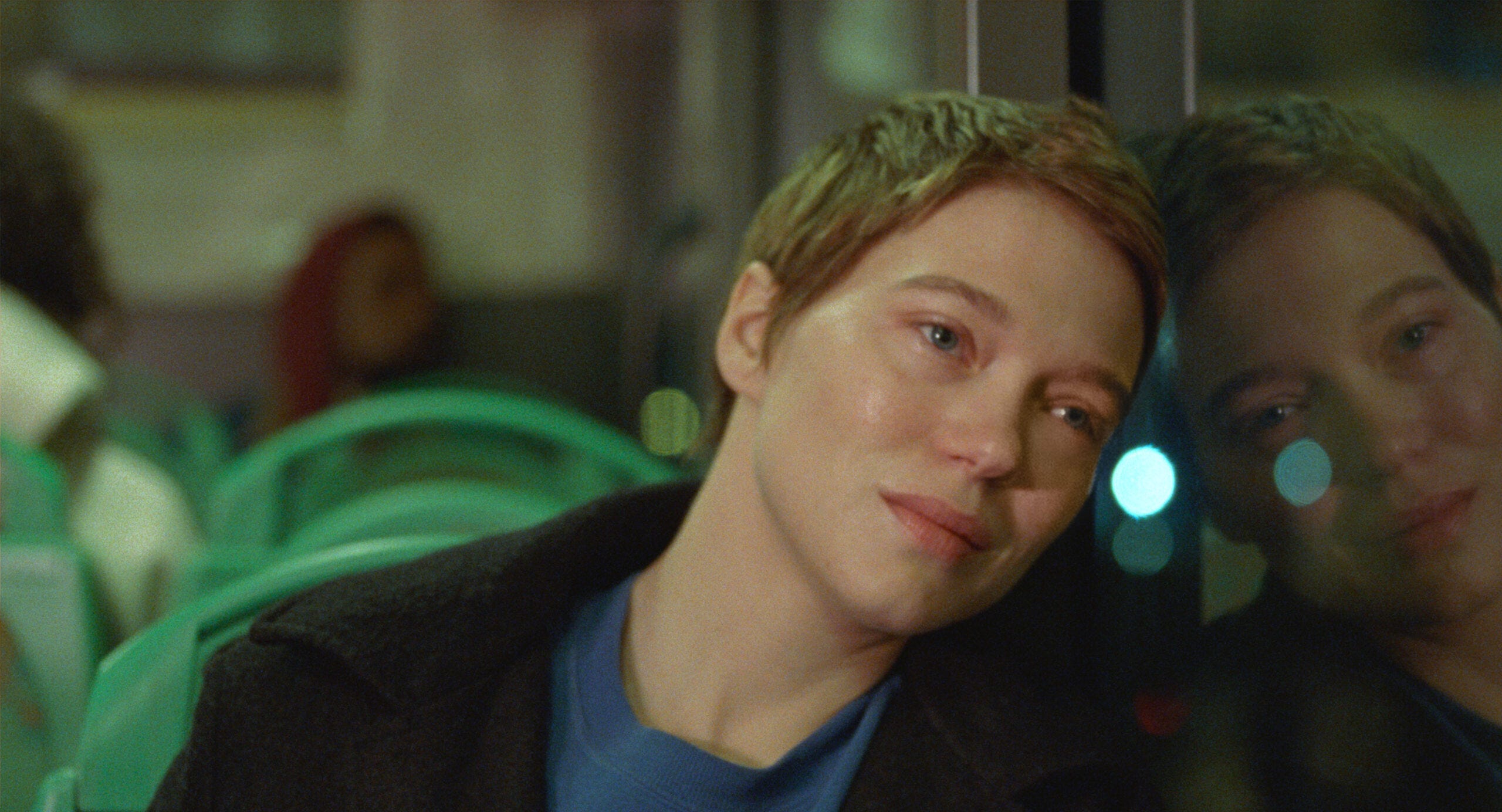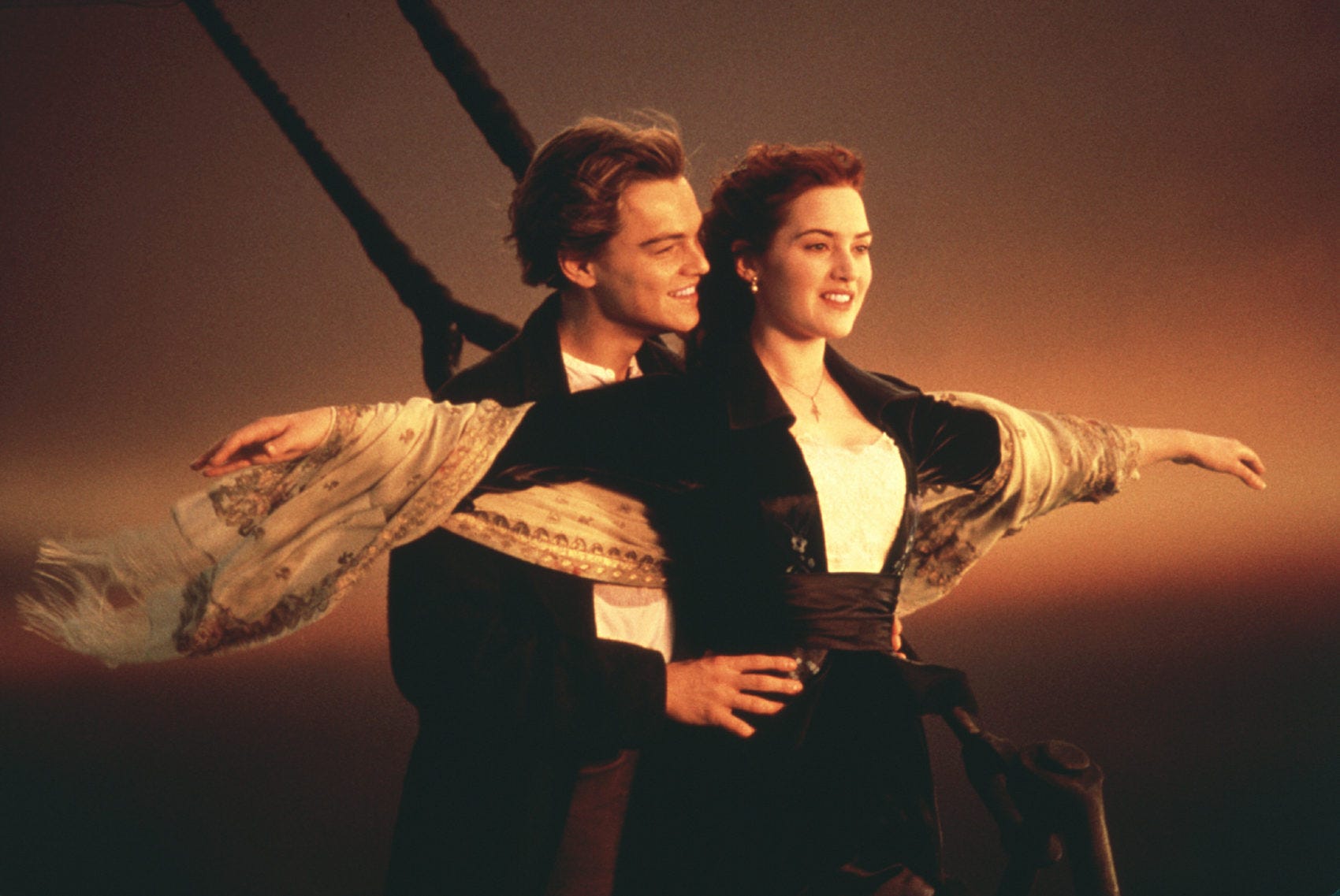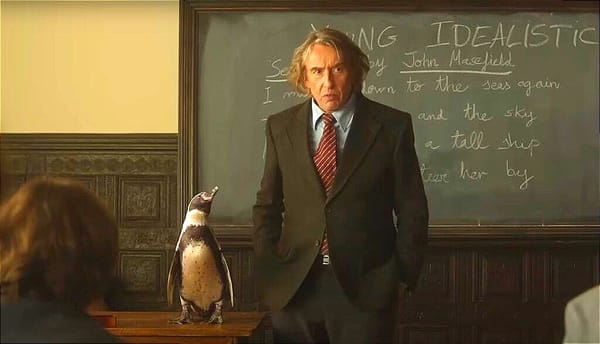New in Theaters: Where's the Beef?
Reviews of "Magic Mike's Last Dance" (⭐⭐1/2), "No Bears" (⭐⭐⭐⭐), "Close" (⭐⭐⭐), and "One Fine Morning" (⭐⭐⭐).

Note: The Watch List will be on vacation next week as Ty goes somewhere that doesn’t have movies. A new podcast has been pre-loaded to land midweek, but other than that, see you after Presidents Day.
Also: Super Bowl LVII is this Sunday and while I don’t have a dog in the fight, it has allowed me the opportunity to write up a brief history of athletes in movies for the New York Times, pegged to Tom Brady’s appearance in the recent “80 For Brady.” (Don’t give up your day job, Tom — oh, wait, you just did.) The article is here if you’re interested.
I know I said in my most recent post that February is a duff month for new releases, but there are some good ones expanding today to independent theaters outside New York and L.A. and one sequel that might have been a reliable hit in pre-pandemic days. (A recent article in the trade journal NextTV paints a dire picture of the theatrical landscape in the COVID/streaming era, where the well-reviewed M. Night Shyamalan movie “A Knock at the Cabin” leads the box office with a paltry $14.2 million, a third of what the director’s poorly reviewed “Glass” opened with four years ago. Meanwhile, Regal Cinemas has filed for bankruptcy. It’s not looking good out there.)

The aforementioned sequel, “Magic Mike’s Last Dance” (⭐ ⭐ 1/2), is notable for marking Steven Soderbergh’s return to theaters after four years making movies for VOD streamers – “High Flying Bird” and “The Laundromat” for Netflix, and “Let Them All Talk,” “No Sudden Move,” and “Kimi” for HBO Max. (They’re all pretty good, but “Bird,” “Move,” and “Kimi” are the keepers.) “Dance” also marks his return to directing a “Magic Mike” movie after the slapdash first sequel, “Magic Mike XXL” (2015), was helmed by Gregory Jacobs. Ironically and somewhat distressingly, “Magic Mike’s Last Dance” doesn’t feel much like a Steven Soderbergh movie. The twisty scripting and unfussy craftsmanship – the professionalism – that are this director’s hallmarks are missing in a final installment that sends Channing Tatum’s world-weary male stripper Mike Lane to London to put on a show backed by wealthy mentor/love interest Maxandra Mendoza (Salma Hayek). Aside from a literal Zoom cameo, gone are the hero’s beefcake pals from the first two movies – the congenial Joe Manganiello is especially missed – and they’re replaced by a small army of British hunks who are terrific as dancers and anonymous as characters.
So it goes throughout “Last Dance” – the choreography is off the charts but the drama is on life support. The screenplay (by Reid Carolin, who’s written all three “Magic Mike” movies) brings up notions of consent and permission, of letting women lead with their desires, but it embodies them in characters who wouldn’t be out of place in a 1970s sex comedy: A fusty butler (Ayub Khan-Din), a prim lady bureaucrat (Vicki Pepperdine) with a secret wild side.(A notable exception: Jemelia George, charming as Hayek’s tart-tongued teenage daughter.) The movie’s single biggest problem? It features the only working movie star who’s also a first-rate dancer (I guess Hugh Jackman counts, too), but it barely lets him dance. Tatum has a steamy opening number when Mike first meets Max – the scene is equal parts audition and seduction – and the movie leads up to an acrobatic and genuinely erotic duet between Mike and ballet dancer/featured performer Kylie Shea (above). This last takes place in an onstage downpour, a tip of the hat to Gene Kelly and an acknowledgement, perhaps, that everyone here may have wanted to make a straight dance musical. They didn’t. They made “Humpin’ In The Rain.”

You could go see “No Bears” (⭐ ⭐ ⭐ ⭐, in theaters) to celebrate the release last week of its director, Jafar Panahi (above), from an Iranian prison after six months of detention and two days of a hunger strike. Or you could see it because it’s another masterpiece from the man who has given us “Crimson Gold” (2003) and “This Is Not a Film” (2011), among other works in a career of artful protest and political persecution. As is his practice of late, Panahi plays himself, a moviemaker technically forbidden by the Iranian government from making movies; this metafictional Panahi installs himself in a small border town and directs a cast and crew shooting a drama a few miles away in Turkey. As arguments erupt among the actors – Mina Kavani, an Iranian performer living in exile in Europe, is powerfully moving – a scandal in the village threatens to enmesh the visiting director, no matter how hard he tries to stay neutral. Witty and despairing in equal measure, “No Bears” is a fascinating cinematic layer cake of themes, sorrows, and banked fury. It mourns the death of love in a repressive society, it says that bringing a camera to the party is always asking for trouble – that filming itself constitutes a threat to established orders, whether local patriarchies or national theocracies – and it says that none of us are ever, ever wholly innocent.
As befits a movie coming from a man who has been banned from making movies, “No Bears” is possessed by the idea of escape and painfully aware of its futility. The title comes from a remark by one of the villagers that there are no wild animals roaming the countryside, but Panahi knows better – he knows the bears are running the show. Before this movie could premiere at the Venice Film Festival last August, he was arrested and sentenced to six years in prison for “propaganda against the regime,” and the film itself was labelled “a political game [rather than a] movie” by Iran’s Ministry of Culture. After an international outcry that was renewed with last week’s hunger strike, Panahi is free once more, but the games continue. If you’re new to this director, start with “This Is Not a Film” and proceed forward through “Taxi” (2015) and “3 Faces” (2018) – all movies that officially don’t exist and artistically can’t be denied.

The first half of Lukas Dhont’s “Close” (⭐ ⭐ ⭐, in theaters) is as emotionally overwhelming as anything I’ve seen lately; the second half is powerful, too, but you can hear the gears clicking away beneath the swooning visuals. Set in Belgium’s farm country, it follows the intense companionship of two 13-year-old boys, Léo (Eden Dumbrine, above right) and Rémi (Gustav De Waele, above left), friends since childhood, as it unravels in the first year of what we’d call middle school. (An aside from a parent gladly past those years: Isn’t middle school the worst thing ever? Take a bunch of kids who’ve been together since kindergarten and, just as their hormones start popping and they become obsessed with social status, dump them into a larger pool of equally insecure children their own age. It’s like someone built a factory specifically for crushing self-esteem.)
Anyway, the two boys are taunted for their closeness, which makes Léo start to pull away, which makes Rémi miserable – all of this conveyed with minimal dialogue and a restless camera that catches every nuance and schoolyard slight. At a certain point, something very dramatic happens, and “Close” becomes both a more heartbreaking movie and a more obvious one; you may feel the director’s hand on the string that’s jerking your tears. But there’s no denying that the early scenes capture aspects of boyhood friendship – the intensity of make-believe play, the sensuality of physical action in a wide-open world – that few movies bother to touch. And there’s no denying that Dumbrine, an amateur in his first acting role, is a luminous presence who makes you feel every conflicting mash-up of love, resentment, and grief roiling beneath Léo’s skin. Watching him, I was reminded of a gentler but no less immediate Jean-Pierre Léaud of Truffaut’s “The 400 Blows” and Antoine Doinel cycle; with luck (and like Léaud), Dumbrine may have the grace to grow up on camera.

Also rolling out to more theaters today, “One Fine Morning” (⭐ ⭐ ⭐ 1/2) the latest bulletin from writer-director Mia Hansen-Løve about the quotidian traumas and comedies of a woman’s life. The movie’s a bouquet offered to lead actress Léa Seydoux (above), who in films from “Blue is the Warmest Color” (2013) to the last two James Bond installments to David Cronenberg’s “Crimes Of The Future” (2022) has been called upon to be sultry and sexy and femme fatale-y (coming later this year: a new version of the 1970s softcore hit “Emmanuelle”) and here is allowed to be … a person, with attendant hopes and flaws. Seydoux’s character, a Paris single mother named Sandra, works as a translator, struggles with helping her father (Pascal Greggory) cope with a degenerative disease, starts an affair with an old friend (Melville Poupaud) who’s inconveniently married, and generally passes through her world at the speed of life. I blow hot and cold on this filmmaker: “Eden” (2015), her ode to the French House music scene, meandered too much for my tastes, but 2021’s “Bergman Island” is an affectingly wise comedy-drama about being the female half of a creative couple – Hansen-Løve’s partner from 2002 to 2017 was director Olivier Assayas (“Clouds of Sils Maria”) – with Vicky Krieps and Tim Roth as married filmmakers on a working vacation and Mia Wasikowska and Anders Danielsen Lie as characters in the movie Krieps is writing. (If you can’t get to “One Fine Morning” in theaters, “Bergman Island” is streaming for free on Hulu and a cheap rental on Amazon, Apple TV, and YouTube.) Hansen-Løve’s films have been compared to those of French New Wave master Éric Rohmer, and they certainly have their share of characters talking their emotions at the expense of feeling them. That said, Sandra is one of this director’s and actress’s richest creations: A woman in full.

“Titanic” (1997, ⭐ ⭐ ⭐ ⭐) is turning 25 years old, and to celebrate, Paramount is re-releasing the movie to theaters this weekend, in case you wanted to relive your teenage crush on Leonardo DiCaprio and/or Kate Winslet while taking part in a Gen-X superspreader event. Better, perhaps, to stay home and catch a rare appearance of the 1948 film noir “Kiss the Blood Off My Hands” (⭐ ⭐ ⭐) airing on Turner Classic Movies on Sunday at 12:00 a.m. and again at 10 a.m. The movie’s not as lurid as that wonderful title but close enough: A foggy London-set thriller about an emotionally damaged WWII veteran (Burt Lancaster, young and appealing) who kills a man in a pub fight and then is blackmailed by a spiv played with smiling relish by that great ham Robert Newton. The romance subplot with Joan Fontaine barely makes sense, but the cinematography (Russell Metty) and score (Miklós Rózsa) are top-notch. The movie’s not available for streaming (it is on DVD), so if all that sounds interesting to you, pounce.
Thoughts? Don’t hesitate to weigh in.
If you enjoyed this edition of Ty Burr’s Watch List, please feel free to pass it along to friends.
If you’re not a paying subscriber and would like to sign up for additional postings and to join the discussions, here’s how.





